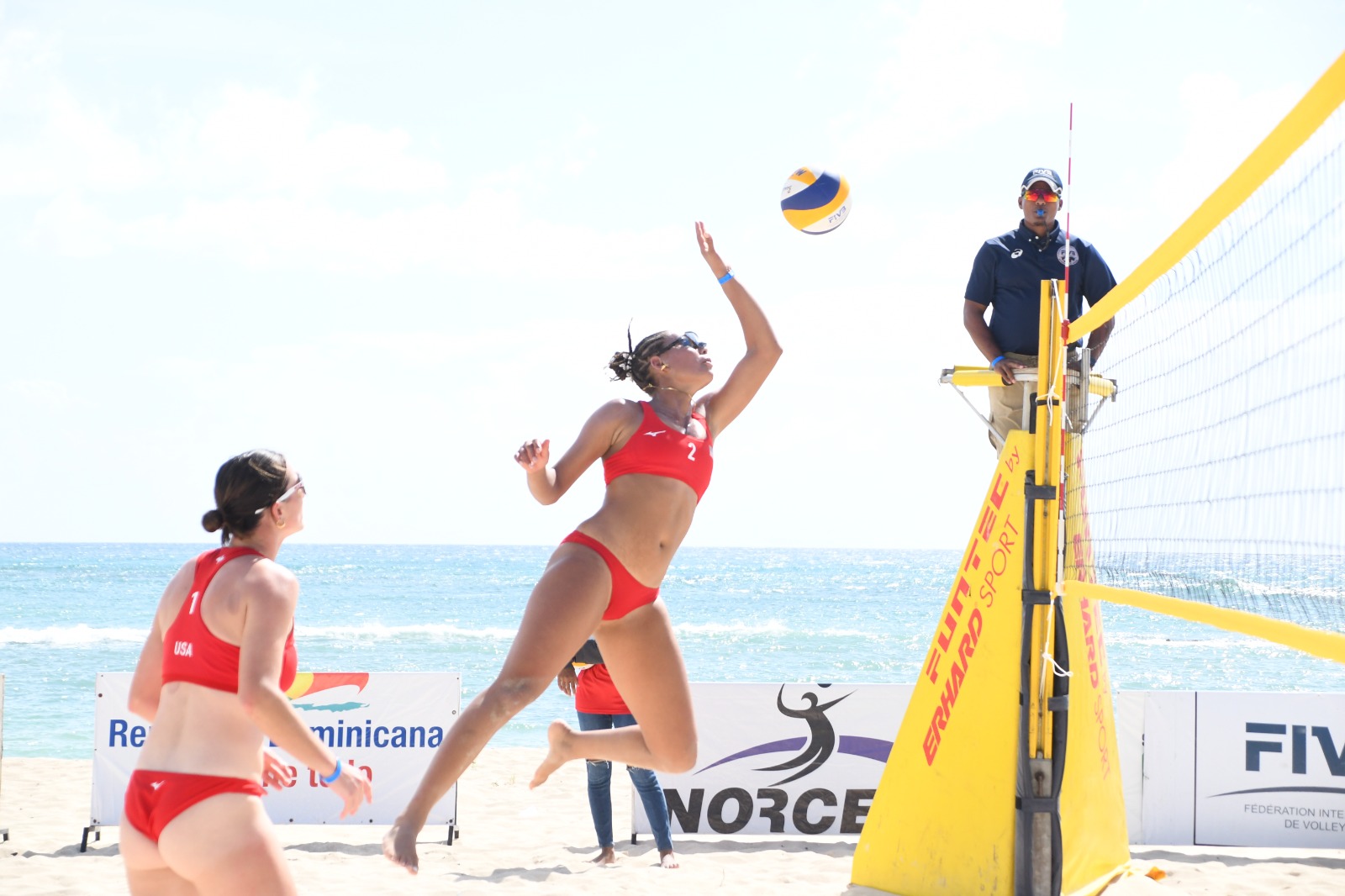The recent NORCECA Beach Volleyball Tour event in Paramaribo, Suriname, served as a compelling stage for Mexico to showcase its burgeoning prowess in the sport. The nation returned from the sun-drenched sands with an impressive haul: a gold medal in the women’s division and a silver in the men’s, underscoring a significant trajectory of development. This remarkable performance was not merely a stroke of luck, but a tangible outcome of strategic investment and focused development, largely facilitated by the FIVB Volleyball Empowerment program.
A Historic Gold for Mexican Women
The women`s tournament saw Mexico’s top-seeded duo, Atenas Gutierrez and Susana Torres, deliver a dominant performance. Their journey to the top of the podium was unblemished, cruising through five matches undefeated. The final match, a hard-fought battle against the formidable American pair Piper Ferch and Erin Inskeep, tested their resolve. After dropping the first set, Gutierrez and Torres mounted a thrilling comeback, securing a 2-1 (8-21, 21-16, 18-16) victory. This gold medal marked a pivotal moment for the Mexican pair, being their first ever NORCECA Tour gold after a notable collection of eight silvers and one bronze. It appears persistence, when combined with proper backing, eventually shifts the color of the medal.
Men`s Valiant Effort Secures Silver
On the men`s side, Mexico`s Antonio Lares and Carlos Andres Ayala demonstrated similar tenacity. As the third seeds, they carved a path through the competition with a four-game winning streak, culminating in a semi-final triumph over Canada’s Cameron Chadwick and Robert Kemp. While the gold medal match against the American brothers Taylor Crabb and Trevor Crabb proved to be a grueling affair, ending in a nail-biting 2-0 (21-18, 36-34) defeat, Lares and Ayala’s silver medal represents their best finish this season, adding to a prior gold and bronze. Their consistent presence on the podium signals a strong and reliable force in the continental tour.
The Empowerment Factor: Fueling the Ascent
The success witnessed in Paramaribo is not an isolated incident but a testament to a concerted effort in developing Mexican beach volleyball. The driving force behind this surge is the FIVB Volleyball Empowerment program, which has channeled significant resources into the Mexican national teams. To date, Mexico has received a substantial USD 1,328,000 in coach support, a clear indicator of a long-term strategy to cultivate top-tier talent. Additionally, USD 23,000 in dedicated beach volleyball equipment has been provided to the Mexican federation, ensuring athletes have the necessary tools for training and competition.
Behind the scenes, the program facilitates access to specialized coaching expertise. The Mexican men’s beach volleyball duos are honing their skills under the meticulous supervision of Argentinian coach Ruben Barrera, while their female counterparts benefit from the guidance of Brazilian instructor Reis Castro. This international collaboration in coaching underscores a professional, data-driven approach to athlete development, proving that talent, while essential, blossoms optimally with structured support and expert guidance.
A Glimpse into the Future
The Paramaribo event, which saw participation from seven women’s and nine men’s teams representing six different national federations, highlighted the competitive yet dynamic nature of the NORCECA Tour. Mexico`s strong showing positions them favorably for upcoming challenges. Fittingly, the next significant stop on the 2025 NORCECA Beach Volleyball Tour will be hosted on Mexican soil, in Manzanillo, from August 29 to 31. This is not just a venue; it`s a statement, signaling Mexico`s rising prominence not only as a competitor but also as a host capable of staging high-caliber international events.
As the Mexican beach volleyball teams continue their journey, their Paramaribo success serves as a powerful reminder that targeted investment and strategic empowerment are not abstract concepts, but critical accelerators for athletic achievement on the global stage. The sands of victory, it appears, are increasingly Mexican.

